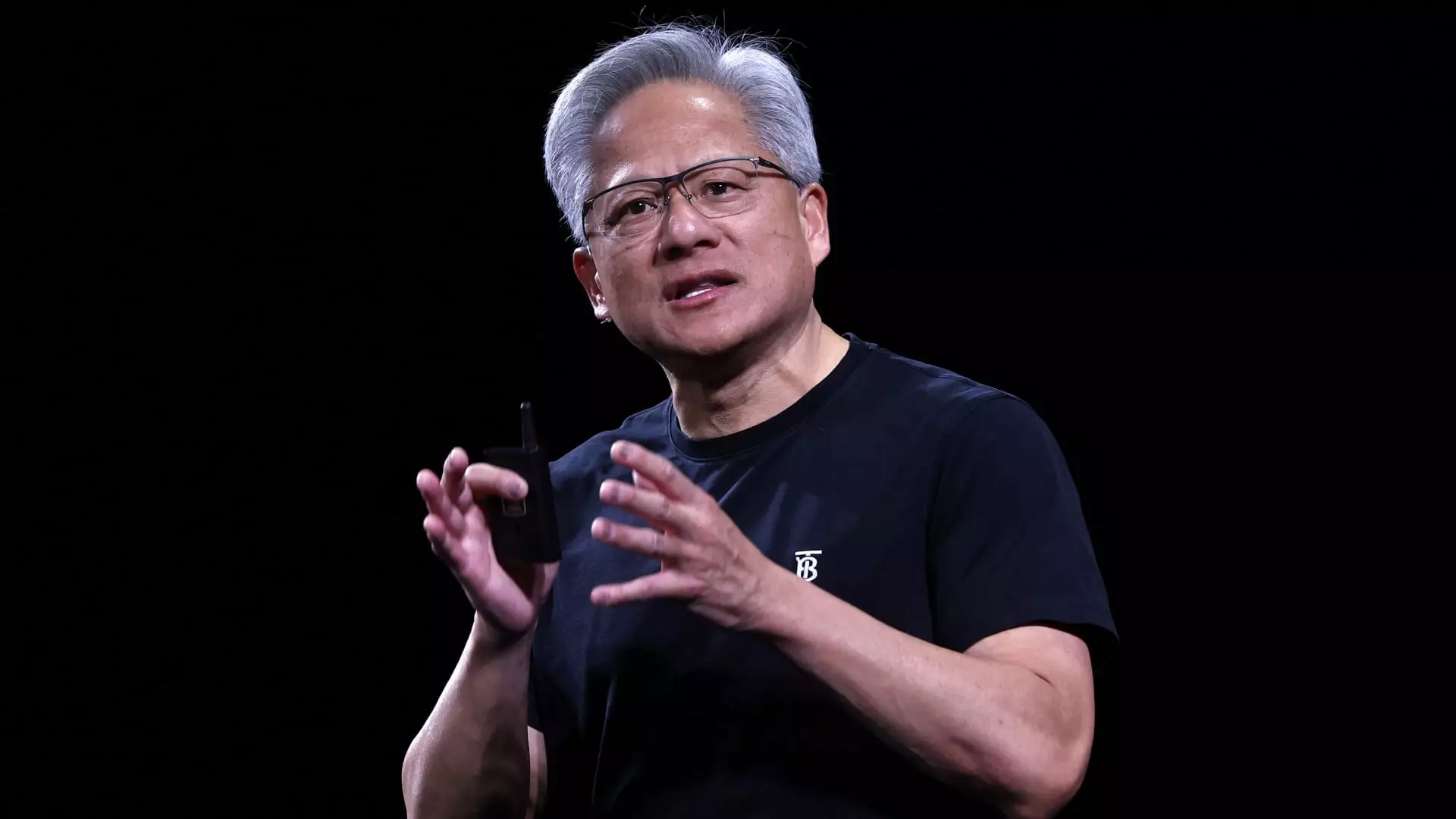Jensen Huang, the dynamic CEO of Nvidia, recently embarked on an exhilarating tour of Europe that’s sending shockwaves through the tech world. His presence illuminated major cities like London and Paris, as he engaged with policymakers, journalists, and enthusiastic fans who were eager to bask in the glow of his innovative vision. From the moment he took the stage at the Nvidia GTC event in Paris, it was clear he is not just a business leader but a contemporary rockstar. The overwhelming turnout—reminiscent of a concert atmosphere—speaks volumes about Huang’s magnetic appeal and the palpable anticipation surrounding Nvidia’s ambitions in artificial intelligence (AI).
Huang’s appeals stretched beyond mere product showcases; he envisions Nvidia as a structural pillar for a vast, European AI infrastructure akin to utilities like electricity. The future he painted was not simply one of better chips, but of a continent empowered by cutting-edge technology that enables countries to carve out their own destiny in a digital landscape increasingly dominated by external powers. His message underscores an urgent call for Europe to consolidate its resources in AI, suggesting that now is the time for collaboration rather than complacency.
AI as a Sovereign Necessity
One of the most enthralling concepts Huang advocated during his European tour was that of “sovereign AI.” He underscored the critical importance of establishing localized data centers that cater to national populations, rather than remaining dependent on foreign servers. In an era of heightened geopolitical tensions, this idea resonates with many European leaders who are becoming increasingly distrustful of relying on external technology that could jeopardize national security.
Huang’s emphasis on “sovereign AI” reflects a shift in the global technology paradigm. The notion that nations could harness their technological advancement in a way that protects their sovereignty is remarkably empowering—even necessary. By advocating for home-grown data centers and a collaborative AI infrastructure, Huang is not just pushing for Nvidia’s growth; he’s positioning Europe to reclaim its technological narrative, thereby reducing vulnerability to outside influence.
Challenges Across Borders
However, Huang’s enthusiasm is accompanied by a stark reality for the North American tech ecosystem. U.S. export controls have significantly hindered Nvidia’s ability to sell advanced chips to China. In an interview, he articulated this complex situation, asserting that while Huawei may be a generation behind Nvidia, the sheer scale of China’s resources can grant it comparable outcomes by utilizing a greater quantity of simpler chips.
This predicament could serve as a wake-up call for both American and European tech ecosystems. As Huang noted, the American technological stack needs to dominate AI development globally to maintain competitive prowess. Ignoring China’s rapid advancements could be a grave mistake, as countries may choose to partner with Chinese firms over American ones based on need or ideological alignment. Huang sees a world where U.S. technology could be sidelined, and if we’re not careful, we could lose critical ground in a race that will ultimately define the future of many industries.
Visionary Boldness
Despite challenges, Huang exudes optimism regarding the future trajectory of technology. During his keynote at GTC Paris, he declared that we are entering a “decade of” unprecedented advancements in autonomous vehicles and robotics. His passion for this evolution hints not only at the technological marvels yet to be unveiled but also at the transformative human potential those technologies could unlock.
Huang also touched upon the ascendance of quantum computing, suggesting we are approaching an “inflection point” where classic computing limitations could be shattered. The implications are immense—solving complex problems ranging from healthcare to environmental sustainability. By championing quantum computing, Huang is inviting Europe to be part of a pioneering journey that could yield unprecedented advancements and restore the region’s competitive edge.
A Call for European Unity
While standing at the ministerial podiums and towering stages, Huang’s message of unity was crystal clear: the time for fragmented advancements is over. Europe must consolidate its technological efforts to establish a cooperative ecosystem aimed at building resilient solutions. This call to action is not merely an opportunistic sales pitch but represents a profound philosophy that could seed a stronger, more unified Europe, determined to lead in the AI domain.
In navigating these uncharted waters, leaders and innovators must align with Huang’s vision if they seek not only to enhance their national economies but also to safeguard their futures. The journey might be fraught with obstacles, yet the promise of harnessing AI for collective growth is a beacon of excitement—one that could illuminate a path toward a tech-savvy, resilient Europe ready to embrace its destiny.


Leave a Reply